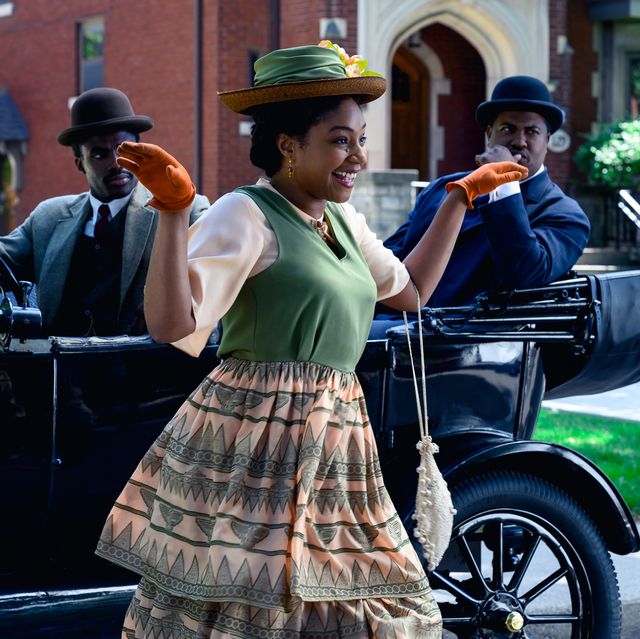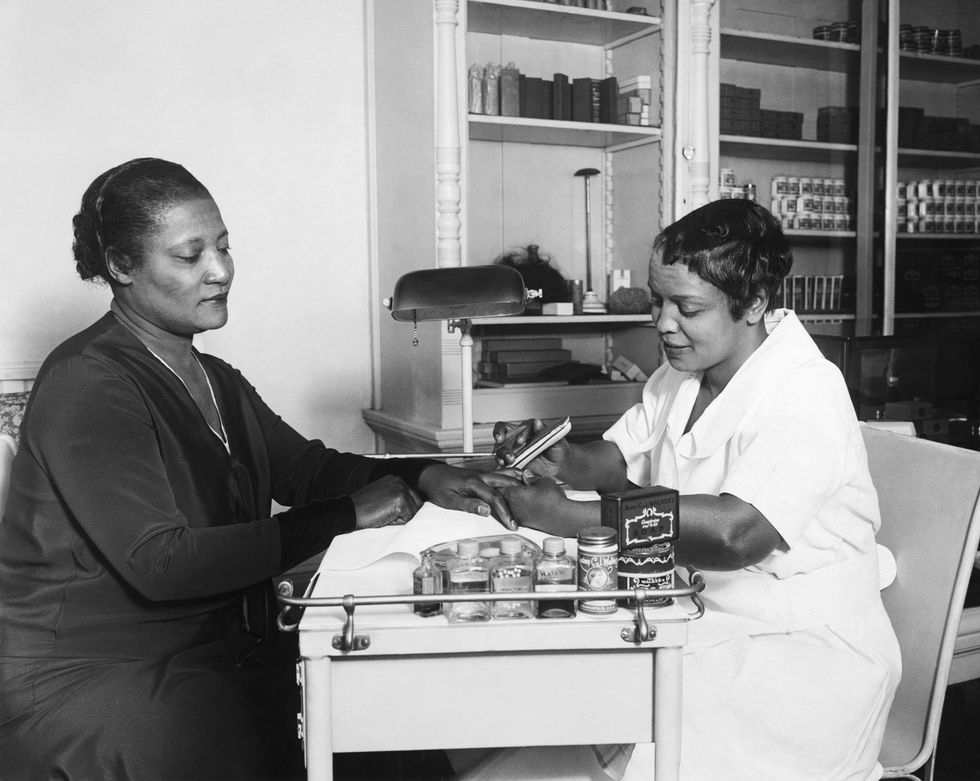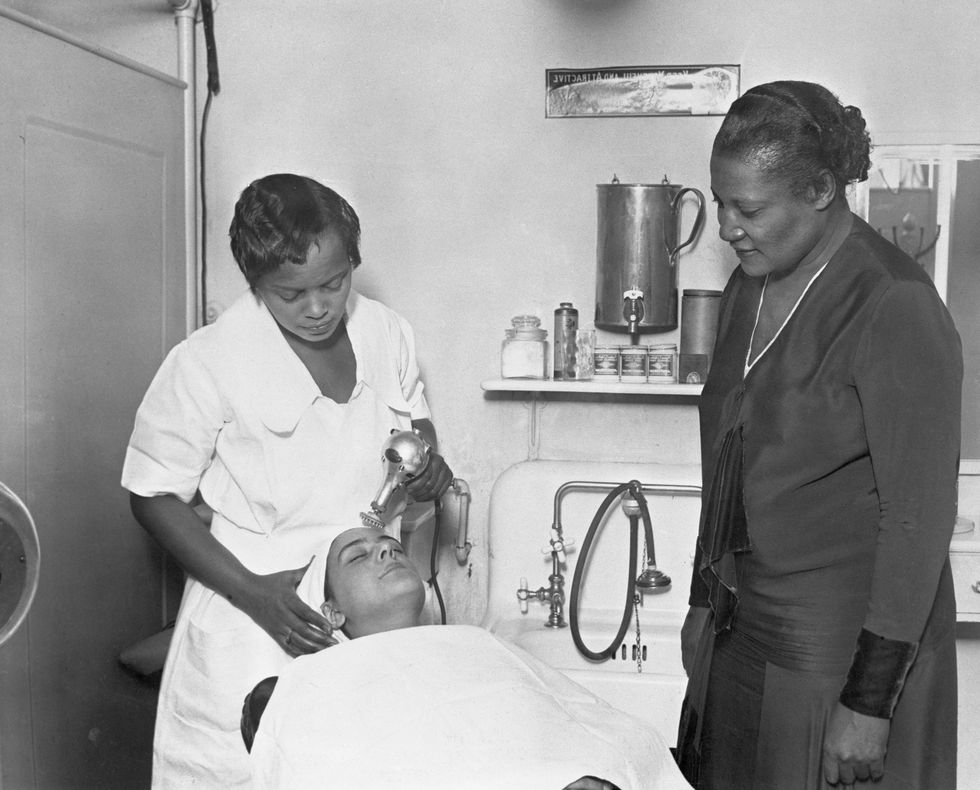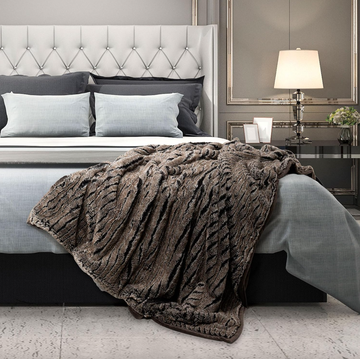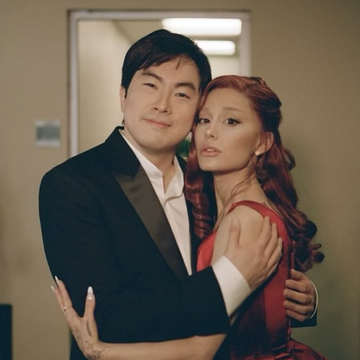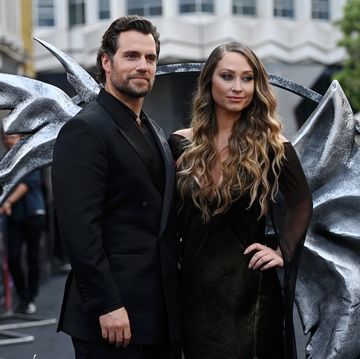If you've seen Netflix's Self Made: Inspired by the Life of Madam C.J. Walker, then you know all about Sarah Breedlove (a.k.a. Madam C.J Walker), one of America's first self-made female millionaires. The film follows Madam C.J., played by Octavia Spencer, on her journey to developing a black haircare empire. But she didn't do it alone.
Her daughter, A'Lelia Walker, played by Tiffany Haddish, also had a significant role in the success of her mother's company and eventually took over the business. Unfortunately, A'Lelia passed away in 1931 in the same way her mother did—from hypertension, according to a blog run by Madam C.J. Walker's great-great granddaughter, A'Lelia Bundles.
But before she died, A'Lelia Walker accomplished a lot, not just for her mother's company but for the black community at the time. Here's everything we know about Madame C.J. Walker's daughter, A'Lelia Walker.
A'Lelia was born Lelia McWilliams.
A’Lelia Walker was born as Lelia, according to Bundles. At 2-years-old, her father, Moses McWilliams died and Madam C.J. raised her as a single mother. The two moved to St. Louis to live with three of Madam C.J.’s brothers. Eventually, the mogul remarried to a man named Charles Walker (hence the name Madam C.J. Walker). A'Lelia took the Walker name to identify more closely with her mother’s business, according to Bundles' blog. Here's a photo of the real A'lelia Walker getting her nails done at one of Madam C.J.'s salons:
She moved to New York to expand the business.
Although the show paints A’Lelia as having her head in the clouds, she was a serious businesswoman. Before taking over the company when her mother died, A'Lelia ran the East Coast operations of the business, according to Bundles' blog.
In 1913, Madam C.J. purchased two townhouses on 136th Street in Harlem, according to the National Trust for Historic Preservation. She and A'Lelia hired an architect to combine the properties into one unit. Once complete, the first floor was used as the Walker Hair Parlor, the basement was the Lelia College of Beauty Culture, where new hires were trained, and the top three floors were used by A'Lelia to live and entertain.
Netflix hints that A'Lelia was gay.
Although the Netflix docuseries hints that A'Lelia might have been interested in women, she never admitted to it. In fact, A’Lelia was married three times—all of her partners men, according to Bundles. You meet A'Lelia's first husband in Self Made—John Robinson, the hotel worker who dreamed of opening a juke joint. Well, you saw how that turned out. In 1919, A'Lelia reportedly married Dr. Wiley Wilson after her mom died. And her third husband was another doctor and World War I captain, James Kennedy.
Madam C.J. Walker's Irvington, NY mansion was named after A'Lelia.
When Madam C.J moved to New York to be closer to her daughter she purchased a mansion in Irvington, New York for $250,000 (which was $$$ back then!), according to the NY Post. The home was 20,000 square-feet, had a swimming pool, marble floor, and was in the same neighborhood as the Rockefeller family, which was shown in Self Made.
The mansion came to be called the Villa Lewaro, after Leila Walker Robinson (remember Robinson, her first husband?), according to NPR. Take the first two letters of her first, middle, and last name: Le-Wa-Ro.
She played a major role in the Harlem Renaissance for the black and queer communities.
When A'Lelia moved to Harlem to expand her mother's business, she also made a name for herself fundraising for charities and founding the Harlem Debutantes Club.
She was also known for her lavish (and I mean lavish) parties at both her home in Irvington and at her Manhattan salon, known as The Dark Tower which was featured in the show's fourth and final episode.
"They provided a safe, welcoming environment for queer people at a time when there were few other social options available. While she herself was not known to be lesbian or bisexual, Walker's parties were places where anyone could express their sexuality however they pleased," NPR reported.
Many of Harlem Renaissance's finest came to A'Lelia's parties, including Langtson Hughes, Countee Cullen, and Carl Van Vechten. Hughes called her "the joy goddess of Harlem's 1920s," according to NPR.
Her parties, in true roaring 20s style would go on for days at a time with hundreds of attendees, per Vanity Fair. “There was men and women, women and women, and men and men," Mabel Hampton, the lesbian activist who attended A'Lelia's parties with her girlfriend described on a taped interview recorded in 1983.
A'Lelia's guests, who often filled up the enormous Villa Lewaro or the Dark Tower's 30 some rooms, per Bundle's blog, partied all night long, many staying "till three or four the next day,” Hampton added. “Everyone did whatever they wanted to do."
Some guests and servers, she recalled, walked around naked and those who wanted to made love where and when they felt like it. When Hampton attended, she followed everyone else lead and undressed down to her stockings and shoes.
A'Lelia's parties were safe spaces for people to love, explore, and express themselves—something Self Made doesn't dedicate any of its storyline to this given the focus on Madam C.J.
She was quite the globetrotter, too.
In Self Made's final episode, A'Lelia references Paris, the latest fashions there, and running away to the city with the woman the storyline hints is her lover, but, in reality, A'Lelia did more than just talk about The City of Lights. In fact, she spent four months traveling to Paris, Nice, Monte Carlo, Naples, Rome, Cairo, Jerusalem, Djibouti, Addis Ababa, and London, according to Vanity Fair.
During her travels she spent time with big names including Josephine Baker in Paris, Paul Poiret, the couturier, Mistinguett, the famous French actress, and Dooley Wilson, the actor who sang "As Time Goes By" in Casablanca, according to Bundle's blog. On her way to Addis Ababa, A'Lelia was in the company of royalty when she paid a visit to the Ethiopian Empress Zauditu in March of 1922.
While Self Made viewers won't see A'Lelia anywhere but in her mother's salons or by her mother's side, her success and socialite status afforded her the opportunity to see the world.
A'Lelia's death was considered a great loss.
As you might expect, considering the impact A'Lelia had as a part of her mother's business and as a creator of safe spaces for queer people, her death in 1931 was mourned by the people she touched—including the greats—and her funeral was well-attended.
Langston Hughes called her death "the end of the gay times of the New Negro era in Harlem,” per Vanity Fair. At her funeral, Mary McLeod Bethune, the civil rights activist, gave a eulogy and when Hughes described the service in his book, The Big Sea, he wrote that just like during her lifetime, it resembled a party "with hundreds of friends outside, waving their white, engraved invitations aloft in the vain hope of entering."
A'Lelia's adopted daughter took over the company when she died.
A’Lelia’s didn't have any biological children. But she adopted a daughter named Mae who took over the company in 1931 until she died in 1945, according to Bundles blog. Mae’s daughter, A’Lelia Mae Perry Bundles, took over after that.
Alexis Jones is an assistant editor at Women's Health where she writes across several verticals on WomensHealthmag.com, including life, health, sex and love, relationships and fitness, while also contributing to the print magazine. She has a master’s degree in journalism from Syracuse University, lives in Brooklyn, and proudly detests avocados.
